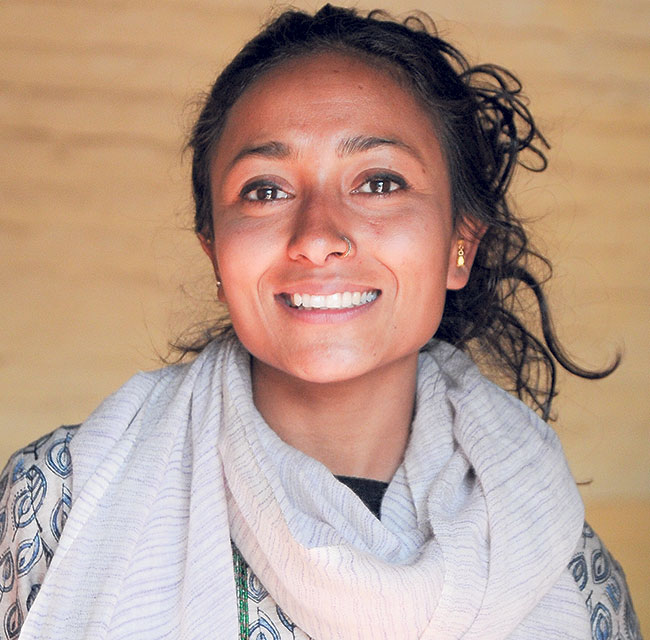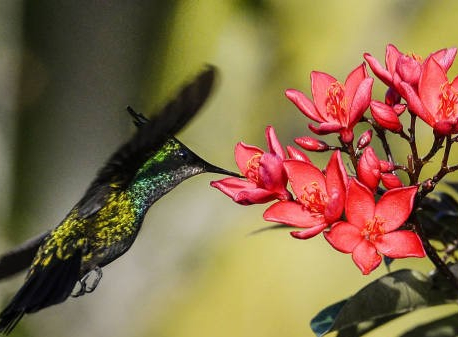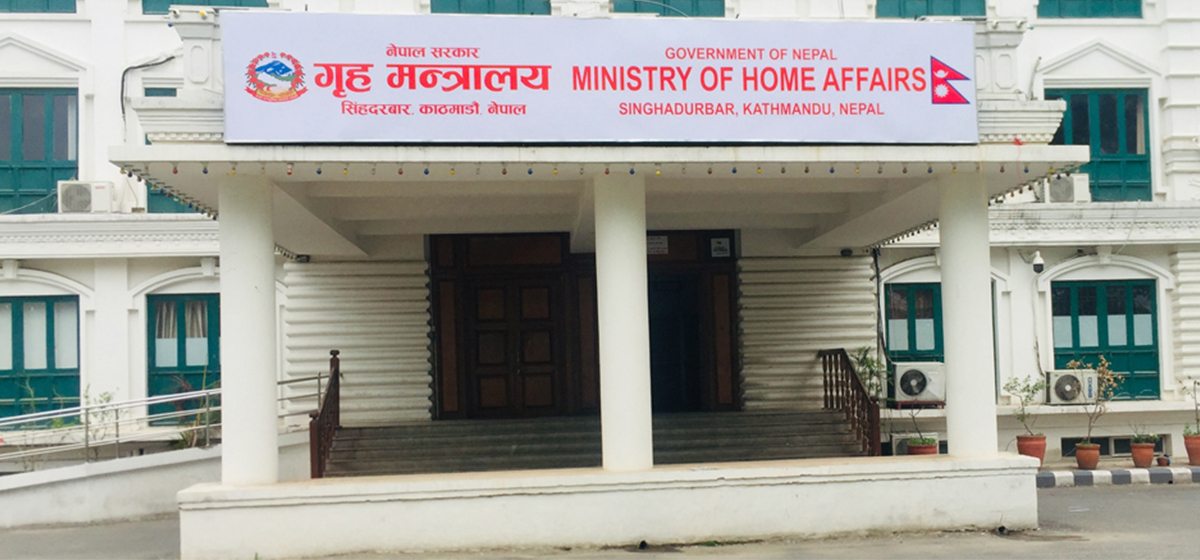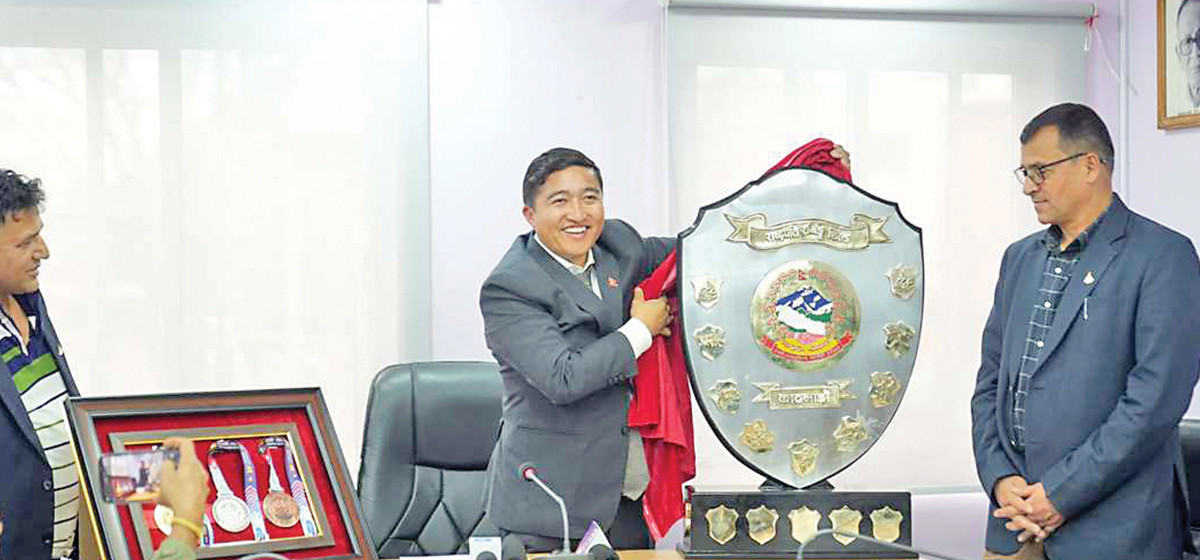
OR
She is a yoga teacher who confesses being quite attached to nature. Along with promoting a healthy lifestyle she also encourages eco-friendly habits. But one thing that always bothered her while teaching yoga were the yoga mats. “They are usually made of synthetic material and the smell of rubber and chemicals is repelling,” says Prabighya Basnet, co-founder of Khali Khutta.
 That is when she decided to make her own biodegradable and nature-friendly yoga mats. So after completing her masters’ degree in Forestry and Agriculture, Basnet, along with her husband Dave, started her own venture named Khali Khutta.
That is when she decided to make her own biodegradable and nature-friendly yoga mats. So after completing her masters’ degree in Forestry and Agriculture, Basnet, along with her husband Dave, started her own venture named Khali Khutta.
“Khali Kutta translates to barefoot and it also means coming closer to earth. That is exactly what Dave and I stand for. I have always tried to lead a plastic free life and I encourage others to do the same. All our products are made in Nepal and are completely biodegradable,” she adds.
Products at Khali Khutta are manufactured by utilizing the local resources of Nepal. Khali Khutta also tries to conserve native bees of Nepal called Apis serena as they play an important role in maintaining the equilibrium of the ecosystem. However, village locals have started breeding Epis mellifera, a western honeybee that produces more honey.
“We sell lip balms made of Apis serena’s bee wax. This is our attempt to preserve our local bees and encourage people to breed them as well,” says Basnet. These balms are filled in handmade wooden tubs made from sisso, a hardwood tree native to Nepal. They also make apricot balms. The apricots they use are brought from the Himalayan region of Mustang.
Apart from lip balms and yoga mats, Khali Khutta also makes bag packs and shopping bags out of local and biodegradable materials. Instead of zip chains that are manufactured and imported from China, they use wooden buttons or copper and brass buckles. These copper and brass buckles are made in Bhaktapur by traditional artisans.
They also use natural dies made of fruits such as pomegranates to color their bags. These natural colors don’t harm the environment when the bags are disposed off.
Along with preserving nature and traditional knowledge, Khali Khutta is also determined in building skills in Nepal. “Our small effort is providing employment to many people. We intend to build a better platform for our skilled youths in the coming years,” says Basnet. She believes that every citizen in Nepal has to contribute towards building the future of our nation.
According to Basnet, Nepal also needs to preserve its existing eco-friendly ways of life. For that Basnet states, “The local artisans and farmers have to encouraged. They shouldn’t have to go to abroad in search of better opportunities. And Nepalis have to buy and have faith in products made in Nepal.”
Basnet also laments that Nepalis are slowly drifting away from their traditional lifestyles. She says proof of that is the fact that we no longer see the traditional naglo, muda or even doko in our houses. Plastic products have replaced them. “I want to preserve the traditional knowledge and products of Nepal,” she adds.
She also advises everyone to try and lead a minimalistic lifestyle and think wisely before they buy anything. “I especially request the younger generation to not fall into the trap of the consumerism culture. Before buying any product, you must think about where it comes from. You must also ask yourself if you really need that product,” she says further adding instead of buying ten cheap products imported from other countries one can spend wisely on one product that is made in Nepal. And, in the long run, that will make all the difference.
You May Like This

Nature crisis: Humans 'threaten 1m species with extinction'
PARIS, May 6: One million animal and plant species are now threatened with extinction. ... Read More...

Preserved vulture to be released in nature
CHITWAN, April 6: The preserved vulture is to be left free in new natural areas to increase the number of... Read More...

Nepal closer to SAFF semifinal, Maldives defeated 9-0
KATHMANDU, Dec 29: Nepal has inched closer to the semifinal of the ongoing Women’s SAFF Championship after producing 9-0 victory over... Read More...


Just In
- Chaite Dashain being celebrated by worshiping Durga Bhawani today
- One individual held with 23 kg hashish-like substance in Bardia
- Rain with storm likely in hilly regions across the country for next 3 days
- Most of the commercial banks fail to adopt good governance practices: NRB
- NOC increases price of petrol, diesel and kerosene by Rs 3 per liter
- Nepal's Forests in Flames: Echoes of Urgency and Hopeful Solutions
- 14th Central President Running Shield sports competition to begin from today
- Iran’s counterstrike

















Leave A Comment